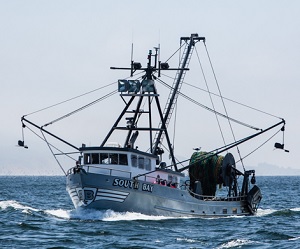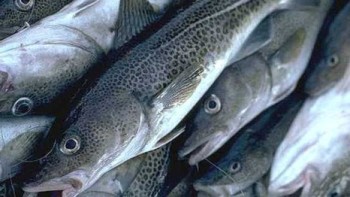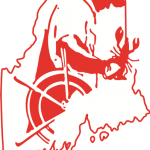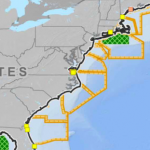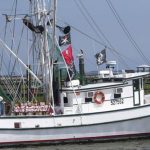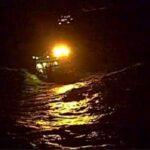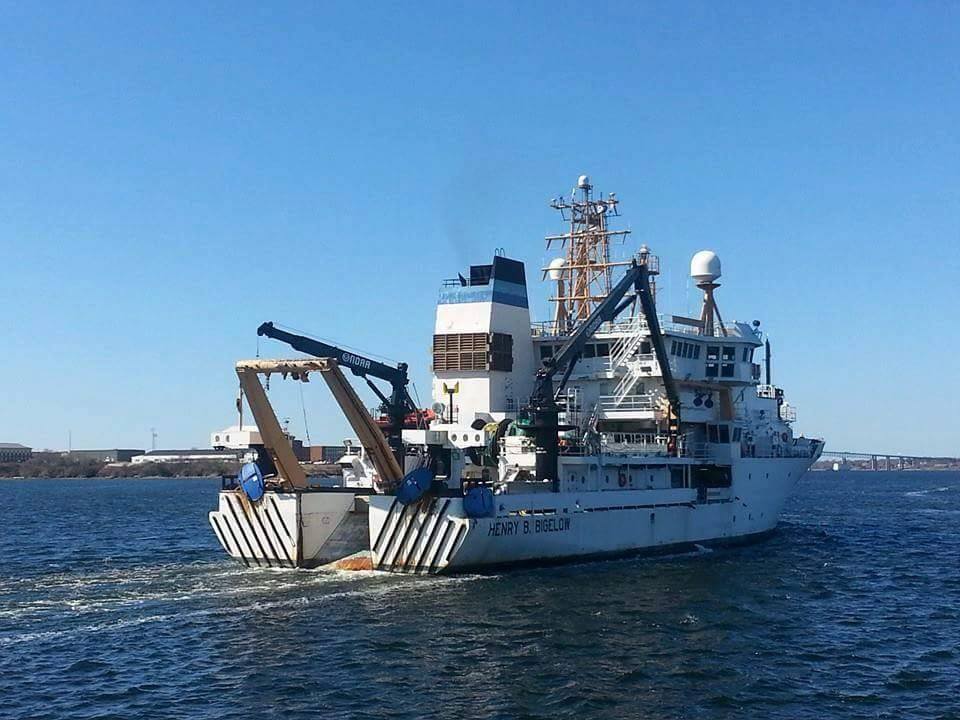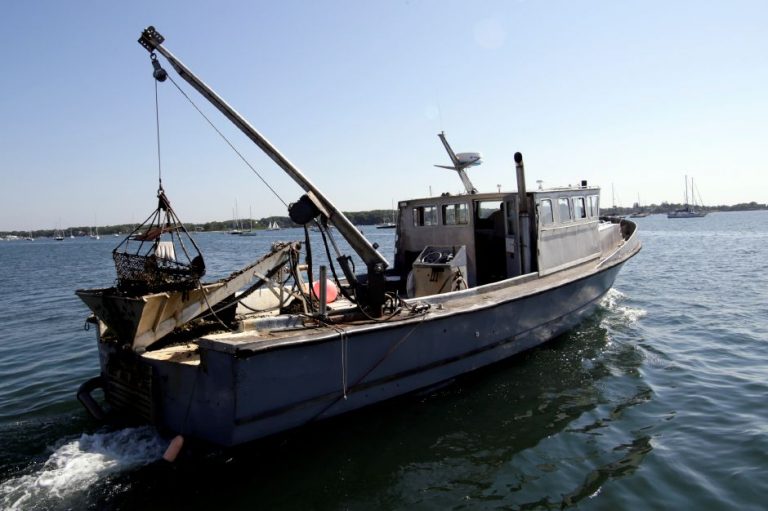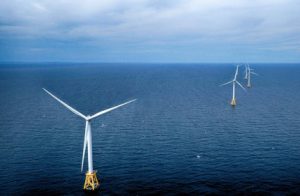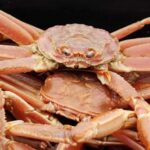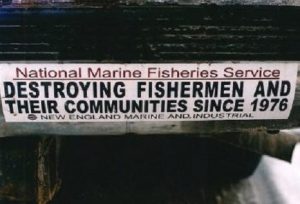Tag Archives: The Nature Conservancy
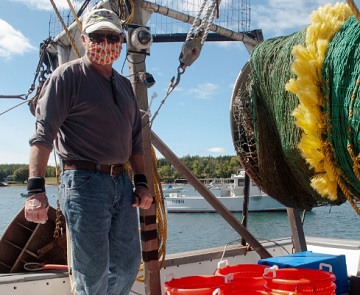
How many fish are in the sea? New rules intend to help with the count.
Regulators and fishermen hope new rules set to take effect this summer will provide a more accurate understanding of the population of some of New England’s most iconic fish, including Atlantic cod, which has seen a spectacular collapse in recent decades. The rules, adopted this spring by federal regulators, will require boats in groundfish sectors to have a human observer or a camera aboard on every groundfish trip to keep tabs on what they catch and discard. >click to read< 09:37
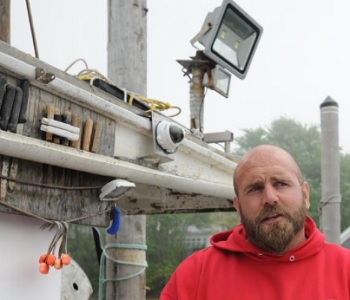
Electronic monitoring long-awaited boon for Cape Cod fishermen
Cape fishermen first started advocating for the use of electronic monitoring in 2006, said Melissa Sanderson, chief operating officer of the Cape Cod Commercial Fishermen’s Alliance. “I would say it’s a long time coming,” said Sanderson of the 14 years it took to finally have approval. But six years ago, Maine fishermen revived interest with their own pilot program and Cape fishermen joined the following year using equipment and technical support provided by The Nature Conservancy and grants from the National Fish and Wildlife Foundation. >click to read< 09:09
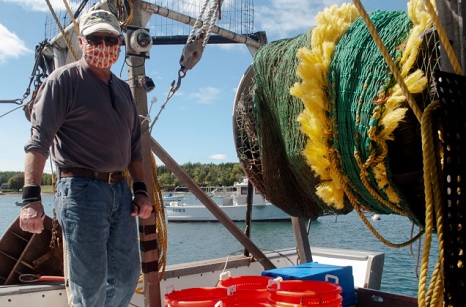
NEFMC will vote Sept. 30 on changing requirements for groundfish monitoring, fishermen have mixed responses
Commercial fisherman Randy Cushman walks on top of his boat where he measures fish in front of electronic monitoring cameras, pictured to the right. Cushman is among a handful of New England fishermen who use electronic monitoring instead of a traditional human observer to track what they catch and discard. The New England Fisheries Management Council (NEFMC) is scheduled to vote on changes to its groundfish management plan at a virtual meeting Sept. 30, culminating four years of research. “If we’re going to have accurate stock assessments, we need 100 percent coverage under this management system,” said Cushman. But, the prospect of increased monitoring concerns Terry Alexander, a fisherman who represents Maine on the NEFMC and operates his 62-foot boat out of Massachusetts. >click to read< 10:57
‘Questioning our Changing Oceans’ panel discussion at the Maine Fishermen’s Forum
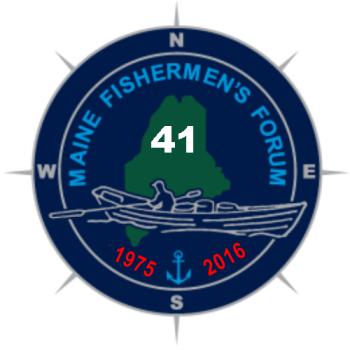 The Maine Fishermen’s Forum will be hosting a fishermen led event focused on fostering a salty discussion around climate change in fisheries. Headlined by Capt. Keith Coburn of the hit show Deadliest Catch and Capt. Buddy Guindon of the new breakout hit Big Fish, Texas, fishermen from around the world have been collected to talk about their experiences on the water and bring to light the issues Maine fishermen need to be thinking about when it comes to a shifting Gulf of Maine ecosystem. The Questioning our Changing Oceans event is sponsored in part by The Maine Coast Fishermen’s Association, The Environmental Defense Fund, The Island Institute, and The Nature Conservancy. Read the rest here 09:57
The Maine Fishermen’s Forum will be hosting a fishermen led event focused on fostering a salty discussion around climate change in fisheries. Headlined by Capt. Keith Coburn of the hit show Deadliest Catch and Capt. Buddy Guindon of the new breakout hit Big Fish, Texas, fishermen from around the world have been collected to talk about their experiences on the water and bring to light the issues Maine fishermen need to be thinking about when it comes to a shifting Gulf of Maine ecosystem. The Questioning our Changing Oceans event is sponsored in part by The Maine Coast Fishermen’s Association, The Environmental Defense Fund, The Island Institute, and The Nature Conservancy. Read the rest here 09:57
Plenty of Fish in the Sea, But Red Tape Keeps Them There
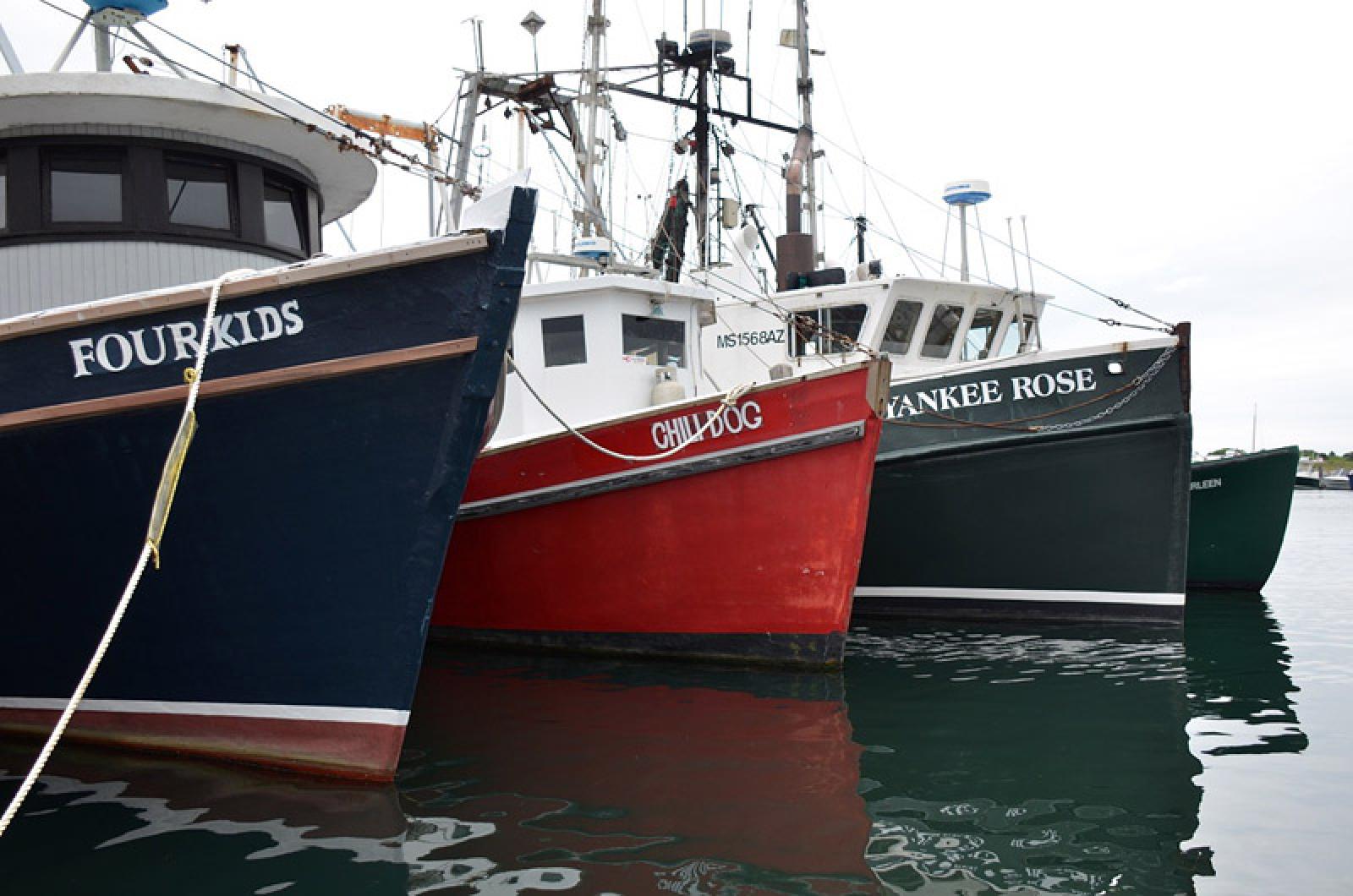 Across the harbor, the famed Unicorn dragger, now rusted and unseaworthy, glowed in the sunlight, a reminder of brighter days for the Island fishing industry. The decay of the Unicorn, and that of her sister ship, the Quitsa Strider II (now gone), has little to do with a lack of fish, Mr. Brighton said. Instead, he said, the main struggle for fishermen these days involves the array of state and federal regulations and the ever-increasing costs associated with a way of life as old as the Island itself. “It’s because we lost our access to those fish,” Read the rest here 10:25
Across the harbor, the famed Unicorn dragger, now rusted and unseaworthy, glowed in the sunlight, a reminder of brighter days for the Island fishing industry. The decay of the Unicorn, and that of her sister ship, the Quitsa Strider II (now gone), has little to do with a lack of fish, Mr. Brighton said. Instead, he said, the main struggle for fishermen these days involves the array of state and federal regulations and the ever-increasing costs associated with a way of life as old as the Island itself. “It’s because we lost our access to those fish,” Read the rest here 10:25
NatureVest – When Dogs and Pigs Breed
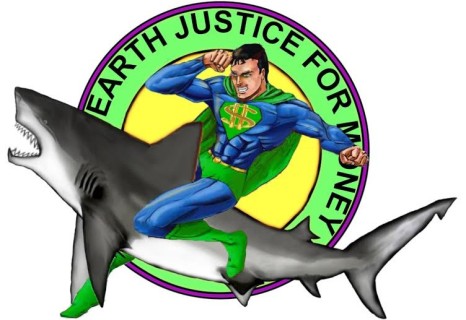 The Nature Conservancy, the worlds largest ENGO, and JP Morgan the worlds largest bank have created NatureVest, a multi billion dollar fund that essentially carry’s out Agenda 21 goals of removing humans from half of the planet, making a 25 % buffer zone at the edge. They do this by inserting themselves as a default governing mechanism for the wild lands that they acquired via debt a swap. They lend money to already broke nations and people, and when they can’t pay, they let the the loan go in exchange for rights to the best wild lands and fishing rights. Read about it here
The Nature Conservancy, the worlds largest ENGO, and JP Morgan the worlds largest bank have created NatureVest, a multi billion dollar fund that essentially carry’s out Agenda 21 goals of removing humans from half of the planet, making a 25 % buffer zone at the edge. They do this by inserting themselves as a default governing mechanism for the wild lands that they acquired via debt a swap. They lend money to already broke nations and people, and when they can’t pay, they let the the loan go in exchange for rights to the best wild lands and fishing rights. Read about it here
Morro Bay group makes move to help mend fisheries
The Nature Conservancy has transferred its Central Coast commercial fishing quotas to a Morro Bay nonprofit group. The Morro Bay Community Quota Fund will now manage the city’s fishing quota and five fishing permits and lease them to local fishermen. The transfer marks the latest development in an effort to rebuild Morro Bay’s fishing industry after the West Coast’s fisheries collapsed a decade ago. Read more here 09:57
Gang Green get’s $3.7M in NOAA fish habitat grants for WA, OR, AK

The largest grant, $1.4 million, goes for three projects with The Nature Conservancy to restore nearly 500 acres of flood plain habitat on Puget Sound. Another $1 million with Snohomish County will help restore nearly 330 acres of wetland in the Snohomish River estuary. In Oregon, National Marine Fisheries Service grants include $392,000 with Ecotrust to return 200 acres of farmland to the Siuslaw River estuary, and $242,000 in Tillamook County to plan restoration of 400 acres of wetlands for Tillamook Bay. more@adn 15:52
Why Aren’t Environmental Groups Divesting from Fossil Fuels? Some of big green’s most powerful players still invest in energy companies.
THEY ARE STEALING OUR OCEAN. FOR PROFIT!!! SOME BUYING FISH QUOTA!!Why do some of the largest environmental organizations still invest in fossil fuels? As outlined in my new piece, Time for Big Green to go Fossil Free, organizations such as The Nature Conservancy and the Wildlife Conservation Society aren’t taking the simple step of divesting their large endowments and publicly traded investments from energy corporations. Below is a cheat sheet (not comprehensive) for how much money big green groups are investing and for who is—and who isn’t—getting their financial house in order. continued
Maine Voices: Hope remains for New England fisheries
 For our part, The Nature Conservancy has worked with fishermen and other partners for several years because we are committed to being more than an interested bystander. We became a stakeholder in this fishery by acquiring groundfish permits, and have used them to support collaborative research with fishermen and to help secure long-term access to the fishery. Read more here
For our part, The Nature Conservancy has worked with fishermen and other partners for several years because we are committed to being more than an interested bystander. We became a stakeholder in this fishery by acquiring groundfish permits, and have used them to support collaborative research with fishermen and to help secure long-term access to the fishery. Read more here
Conservationists team up with ranchers, loggers, turncoat fishermen
The Nature Conservancy is also partnering with the timber industry in California and Alaska to restore salmon by felling trees to create stream habitat. The group also has partnered with the fishing industry. It bought out fishing permits in California and in Maine to protect millions of acres of ocean habitat, then leased the permits back to fishermen who agreed to fish sustainably. Read More. Get mad!






